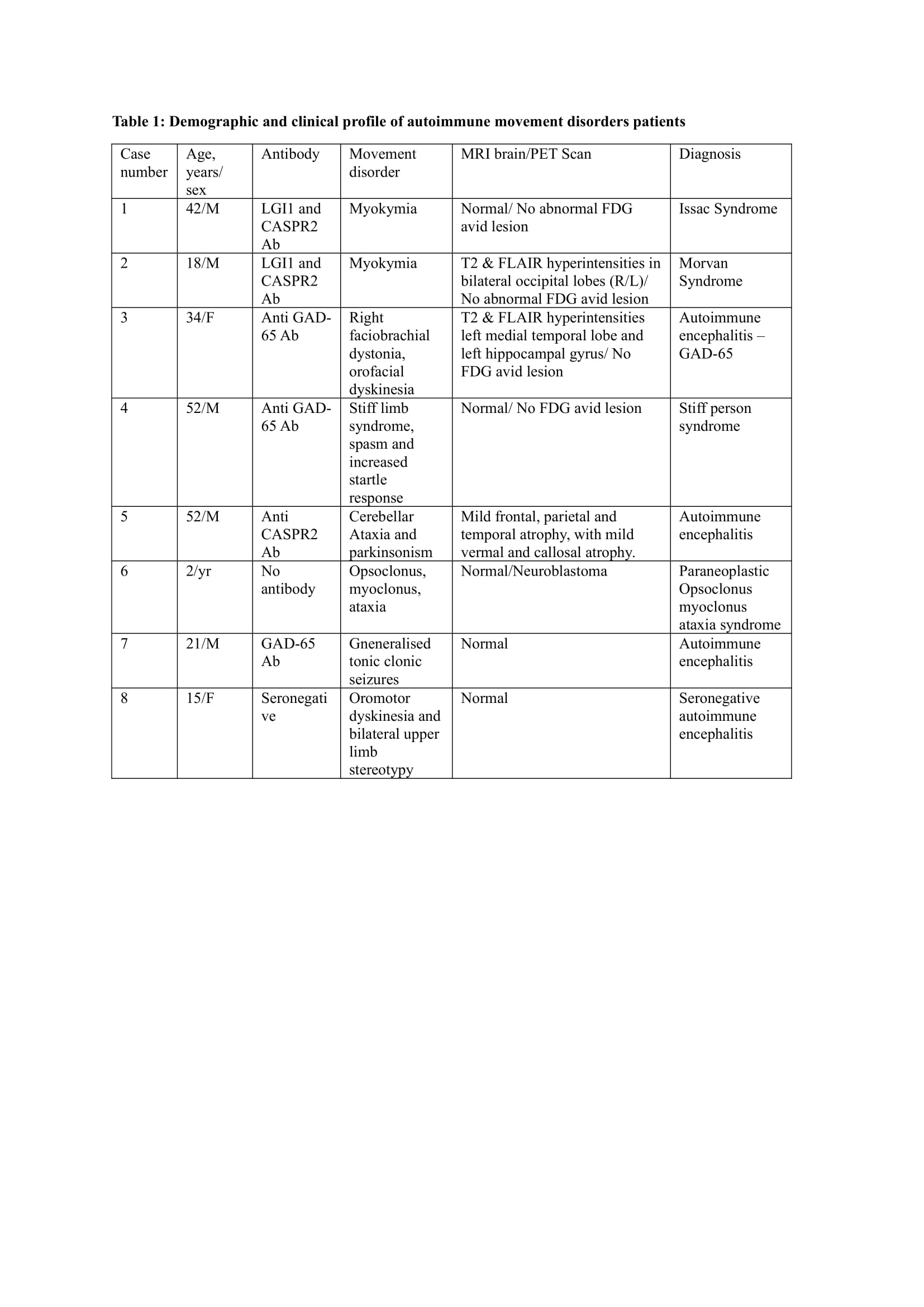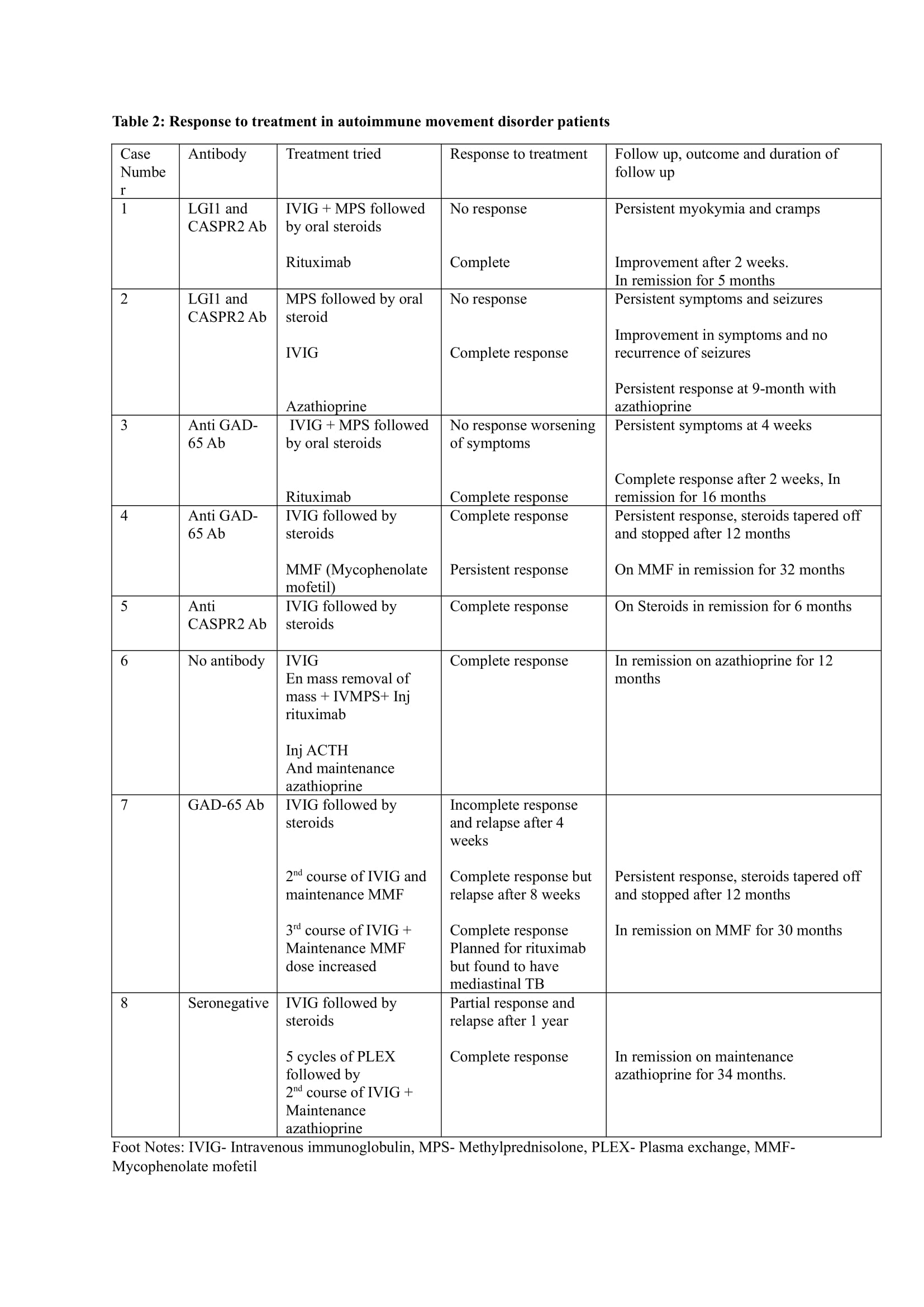Category: Other
Objective: The aim of this study is to describe the variability of presentations, etiology, management, follow up and outcome of autoimmune encephalitis, a potentially reversible cause of movement disorder.
Background: Movement disorders are a prominent and common feature in many autoantibody-mediated neurological diseases and present as varied clinical presentation. This is especially crucial as they are potentially curable and sometimes a harbinger of an underlying tumor. Studies suggest that this group of disorders is not as rare as was initially thought and therefore, it is of utmost importance for clinicians to be aware of the clinical spectrum of this potentially treatable disorder.
Method: We evaluated 8 patients who presented with movement disorders associated with Autoimmune encephalitis (AIE) at our tertiary care centre, between 2021 and 2023. All patients were treated and followed up as per standard protocol.
Results: We evaluated 8 patients who presented with movement disorders in association with AIE. Various abnormal movements observed were myokymia, tremor, dyskinesias, stereotypy, dystonia, ataxia, parkinsonism and stiff limb and spasm (Table 1). Antibodies were detected against GAD-65 (n = 3), CASPR-2 (n = 3) and LGI-1 (n = 2). Diagnosis made were Isaac syndrome, morvan syndrome, autoimmune encephalitis and patient was diagnosed with opsoclonus myoclonus syndrome associated with the neuroblastoma. On neuroimaging 5 (62.5%) patients revealed normal MRI brain. On treatment, 3 (37.5%) patients responded well to first-line immunotherapy (intravenous immunoglobulins or steroid or both). Two patients received second-line therapy consisting of rituximab (Table 2). One patient with paraneoplastic opsoclonus myoclonus ataxia syndrome received ACTH and required surgical removal of tumor. Presently all patients are in remission in which six patients are on maintenance immunosuppressants with Azathioprine (n = 3), Mycophenolate mofetil (MMF, n = 3) and two patients on rituximab.
Conclusion: Autoimmune encephalitis (AIE) constitutes an important treatable cause of movement disorders. Herein, we aimed to highlight the spectrum of movement disorders and their treatment, outcome and follow up. Our observations suggest that high index of clinical suspicion with early and aggressive management of these disorders will increase the likelihood of better outcome.
Table 1: Demographic and clinical features
Table 2: Response to treatment
To cite this abstract in AMA style:
P. Singh, A. Gupta, A. Gupta. Autoimmune Movement Disorders: An Illustrative Case Series of 8 Patients. [abstract]. Mov Disord. 2024; 39 (suppl 1). https://www.mdsabstracts.org/abstract/autoimmune-movement-disorders-an-illustrative-case-series-of-8-patients/. Accessed April 18, 2025.« Back to 2024 International Congress
MDS Abstracts - https://www.mdsabstracts.org/abstract/autoimmune-movement-disorders-an-illustrative-case-series-of-8-patients/


